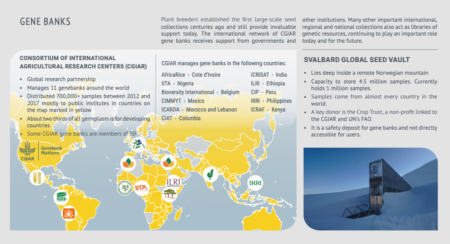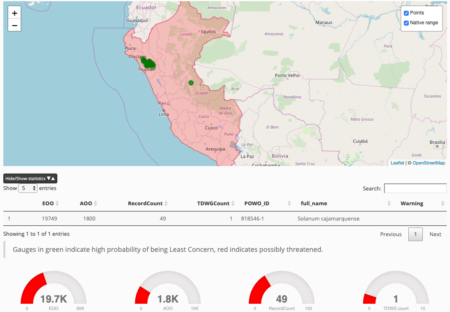The International Seed Federation has a handy brief Guide to Genetic Resources online. It covers why plant genetic resources are important, and what arrangements are in place for access and benefit sharing 1 — not surprisingly, perhaps, mainly from the point of view of crop breeders.
Breeders work mostly with modern varieties, the so-called “elite” genetic resources. Sometimes they look beyond modern varieties to develop a valuable attribute, such as resistance to new pests or diseases, nutritional content, or flavour. They might use nonelite varieties, such as landraces, heirlooms, or crop wild relatives, which come mostly from public or private gene banks.
The conservation of genetic resources is like having an insurance. By having a larger pool of genetic resources, plant breeders are more likely to find solutions that farmers and others need. This means that efforts to conserve genetic resources are critically important. These genetic resources may contain the traits that future generations will need.
There’s a page on genebanks, focusing on the international collections of CGIAR.
It’s ok as far as it goes, I guess, but I would have liked to see more on the role of national and regional genebanks, information sources such as Genesys and WIEWS, and traits beyond productivity.

